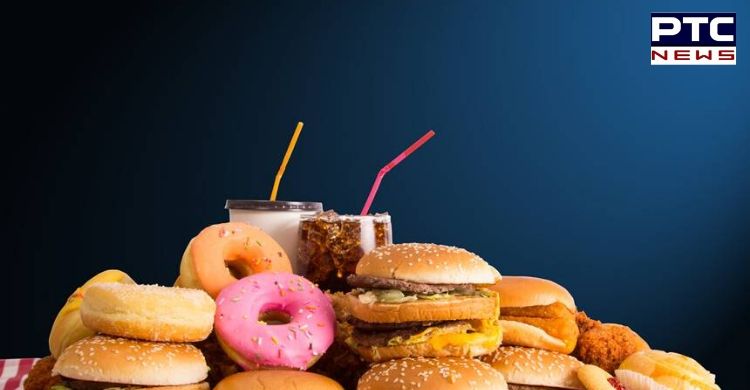
Eliminating trans fats likely to reduce chances of heart attack and death rate: Report
Even as the world is reeling under the threat of the raging Covid-19 outbreak, it is critically important not to lose focus on the Cardiovascular Diseases (CVD), one of the highest causes of death in India. The Global Burden of Disease study estimate of age-standardized CVD death rate of 272 per 1,00,000 population in India is higher than the global average of 235 per 1,00,000 population.
 It has been established that people with comorbidities such as heart disease and hypertension are more vulnerable during the current crisis. The prolonged nationwide lockdown has hit health services and also affected chronic care and screening. It has become imperative to remain healthy and pay special attention to ensuring that our food systems remain safe and nutritious.
It has been established that people with comorbidities such as heart disease and hypertension are more vulnerable during the current crisis. The prolonged nationwide lockdown has hit health services and also affected chronic care and screening. It has become imperative to remain healthy and pay special attention to ensuring that our food systems remain safe and nutritious.
 One way to do that is by eliminating industrially-produced Trans Fatty Acids (TFA) from our foods, fats, and oils. Industrially produced trans fat is a toxic chemical that causes heart attacks and death and is formed in an industrial process that adds hydrogen to vegetable oil converting the liquid into a solid, resulting in “partially hydrogenated” oil (PHO). PHO, known as Vanaspati in India, is commonly used as vegetable ghee for household cooking and consumed in bakery items, sweets, street food, and packaged foods.
One way to do that is by eliminating industrially-produced Trans Fatty Acids (TFA) from our foods, fats, and oils. Industrially produced trans fat is a toxic chemical that causes heart attacks and death and is formed in an industrial process that adds hydrogen to vegetable oil converting the liquid into a solid, resulting in “partially hydrogenated” oil (PHO). PHO, known as Vanaspati in India, is commonly used as vegetable ghee for household cooking and consumed in bakery items, sweets, street food, and packaged foods.

 There are also indicators that TFA may increase inflammation and endothelial dysfunction cause insulin resistance, complications during pregnancy, compromised fetal development, infertility, and cognitive decline, According to WHO, “Trans-fat intake leads to more than 500,000 deaths of people from the cardiovascular disease globally. In India, it accounts for more than 60,000 deaths”.
There are also indicators that TFA may increase inflammation and endothelial dysfunction cause insulin resistance, complications during pregnancy, compromised fetal development, infertility, and cognitive decline, According to WHO, “Trans-fat intake leads to more than 500,000 deaths of people from the cardiovascular disease globally. In India, it accounts for more than 60,000 deaths”.
 Industrial produced TFA has no health benefits. The elimination of industrially produced TFA is feasible. Elimination/reduction of TFA requires action and cooperation by the government, NGOs, consumers, and industry, and it can be done through regulatory actions, promotion of healthier fats and oils, and strong monitoring systems.
Industrial produced TFA has no health benefits. The elimination of industrially produced TFA is feasible. Elimination/reduction of TFA requires action and cooperation by the government, NGOs, consumers, and industry, and it can be done through regulatory actions, promotion of healthier fats and oils, and strong monitoring systems.
 The WHO recommends countries to establish mandatory limits for trans-fats to less than 2g/100g of total fat or oil in all foods (as was pioneered in Denmark in 2003 and subsequently adopted in several countries) Or to reclassify partially hydrogenated vegetable oils as unsafe (as is being done in Brazil, Canada, and the US).
The WHO recommends countries to establish mandatory limits for trans-fats to less than 2g/100g of total fat or oil in all foods (as was pioneered in Denmark in 2003 and subsequently adopted in several countries) Or to reclassify partially hydrogenated vegetable oils as unsafe (as is being done in Brazil, Canada, and the US).
 WHO also released the REPLACE package aims to accelerate restrictions and bans on trans-fats by providing governments with these six steps to eliminate this harmful compound.
WHO also released the REPLACE package aims to accelerate restrictions and bans on trans-fats by providing governments with these six steps to eliminate this harmful compound.
 In India, the Food Safety and Standards Authority of India (FSSAI) has committed to reduce the industrially-produced trans fat in oils, fats, and foods to less than 2% in a phased manner by the year 2022, that would effectively bring the level of trans fats to zero levels in food in India.
Also Read | Coronavirus: India reports highest single-day spike in last 24 hours
However the regulations are currently drafts and unless they are notified with immediate effect, it will be difficult for India to become TFA Free by the set timeline. When the world meets the WHO goal to eliminate trans fat from the global food supply by 2023, it will mark the first elimination of a dietary risk factor for heart disease. India has the opportunity to lead on this important public health issue.
-PTC News
In India, the Food Safety and Standards Authority of India (FSSAI) has committed to reduce the industrially-produced trans fat in oils, fats, and foods to less than 2% in a phased manner by the year 2022, that would effectively bring the level of trans fats to zero levels in food in India.
Also Read | Coronavirus: India reports highest single-day spike in last 24 hours
However the regulations are currently drafts and unless they are notified with immediate effect, it will be difficult for India to become TFA Free by the set timeline. When the world meets the WHO goal to eliminate trans fat from the global food supply by 2023, it will mark the first elimination of a dietary risk factor for heart disease. India has the opportunity to lead on this important public health issue.
-PTC News 